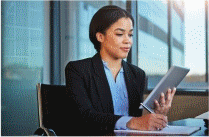When New Technology Becomes Evidence
What it is and how to use it for your next criminal case!

- Product Number: 2180173RBC
-
CLE Credits, earn up to:
3 substantive credits, 0 ethics credits CLE Credit Note -
Add to Favorites List
Choose Date/Location:
-
Product Description
Product Description
While developments in technology improve our everyday lives in countless positive ways, they also create novel means by which the police investigate crime. Prosecutions of many different types rely increasingly on the discovery of incriminating (or allegedly incriminating) digital evidence, not only through searches of smartphones and social media applications/platforms (Facebook, Instagram, Snapchat), but also from new, unexpected sources that record and collect data regarding our daily activity: personal IoT (Internet of Things) devices such as fitness trackers and smartwatches; home assistance devices (Amazon Echo, Google Home); and smart home appliances (Google Nest thermostats and other devices).
The successful defense of any case involving digital evidence requires a lawyer to understand how the police gather it, how the prosecution uses it at trial, the many ways by which to challenge its admission, and, if admitted, how it might be used to the client’s advantage.
The expert faculty discuss the admissibility of new types of evidence, the challenges faced by attorneys from both sides of the aisle in trying to understand and explain the evidence to the finder of fact, and how to try to keep this evidence out if it hurts your case. Don’t fall behind! Learn how this evidence is being gathered and used across the Commonwealth.
-
Agenda
Agenda & Materials
-
2:00-2:15
-
2:15-3:00
-
3:00-3:30
Discovery & Expert Disclosure
on demand video Add to CartWilliam W. Fick, Esq., Fick & Marx LLP , Boston
-
3:30-3:45
Networking and Refreshment Break
-
3:45-4:30
-
4:30-4:50
-
4:50-5:00
Please Note
MCLE webcasts are delivered completely online, underscoring their convenience and appeal. There are no published print materials. All written materials are available electronically only. They are posted 24 hours prior to the program and can be accessed, downloaded, or printed from your computer.
-
- Faculty

